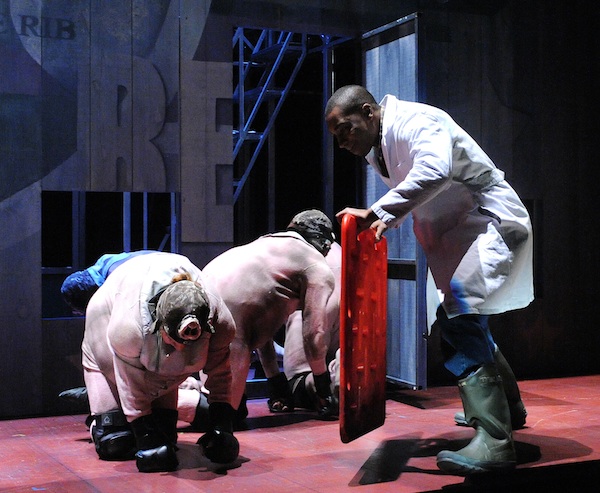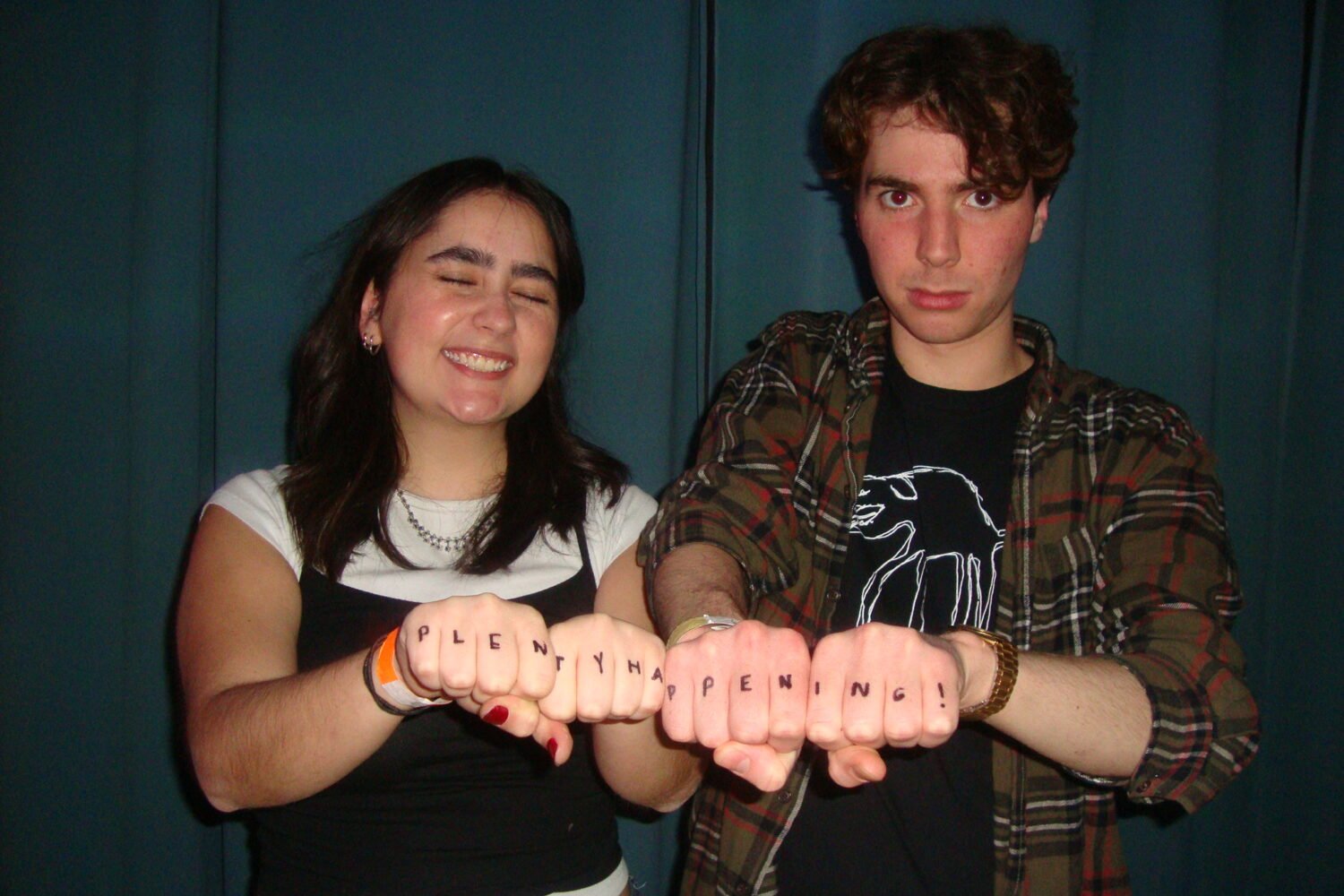Sarah Marshall with JaBen Early in Woolly Mammoth’s production of Civilization (All You Can Eat). Photograph by Stan Barouh.
![]()
Pity the pig. An innocent farm animal, he’s maligned as a metaphor for everything from Wall Street yuppies to braying chauvinists. For every Wilbur or Babe who comes along to dispel porcine stereotypes, there’s an Animal Farm or a Miss Piggy to bring the whole species down again.
And now there’s Big Hog, a character in Jason Grote’s Civilization (All You Can Eat), currently playing at Woolly Mammoth, who’s one of the least sympathetic talking pigs in recent memory (although he’s played ably and convincingly by Sarah Marshall). First glimpsed surrounded by his fat-bellied friends in what appears to be an abattoir, Big Hog plots his escape while muttering a series of apparently nonsensical words (“Pain. Bossa nova. Ethics. Mud. Turnips. Anus.”), in an attempt to communicate his own unique worldview. Less sophisticated, his piggy friends go one by one to their death.
Unfortunately Grote’s worldview, at least as it’s laid out here, isn’t much more comprehensible. In the Civilization playbill, dramaturg Miriam Weisfeld talks of the play’s political narrative—how it’s an allegory for the financial crisis, the fall of Lehman Brothers, the greed that pushed world markets toward total meltdown, and the widespread failure on the part of economists to see it coming. But without having read that section, you’d be hard pushed to draw parallels. Instead, Grote and director Howard Shalwitz adopt the widely used tactic of looking at food as a prism for society’s dysfunction, meaning Civilization feels less like Too Big to Fail and more like The Omnivore’s Dilemma.
Of particular relevance is Fast Food Nation, the Eric Schlosser book turned 2006 movie, which also used seemingly disparate story threads to reveal a larger nightmare, including a teen activist who works for a hamburger chain, and a herd of cattle who are too acclimated to captivity to escape. Grote’s seven characters include a teenage vegan (Casie Platte) who makes a sex tape to help her mother pay the mortgage, a struggling director (Tia James) who makes Twix commercials instead of art, a motivational speaker (Sean Meehan) whose lessons include “making chaos work for your organization,” and an actress (Jenna Sokolowski) who provides voiceovers for Japanese erotic video games.
And then there’s Big Hog, of course, whose transmogrification from pig to unpleasant human is pure Orwell. Big Hog as a character is the play’s ham-handed (pun intended) attempt to tie everything together, but beyond demonstrating in a very visceral way how necessary it is to destroy both yourself and others on your way to the top, not much else becomes clear. The strands of different stories are too tenuous to offer some greater meaning; they end up feeling instead like a series of improvised scenes lumped together. And one hour and 45 minutes with no intermission is a long time to sit through a series of occasionally preachy treatises about the dangers of greed.
Grote can be funny (Big Hog’s restaurant order in particular is a nice moment, as is an imagined viral ad campaign featuring George Washington and Thomas Jefferson bitch-slapping each other over a candy bar), and his cast is mostly engaging and fearless. But Civilization could benefit from having a stronger conceptual narrative behind it. There are so many pop culture references (Facebook, The Moth–style storytelling, racist Obama e-mails, The Butterfly Effect) that the overall effect is both disorienting and shallow. And the terrific Woolly space, disguised behind an old wooden billboard, is mostly underused until the very last scene. There are some interesting ideas at play here, but without a coherent structure behind them, they end up coming off as mere hogwash.
Civilization (All You Can Eat) is at Woolly Mammoth through March 11. Tickets ($30 to $60) are available through the theater’s website.
















